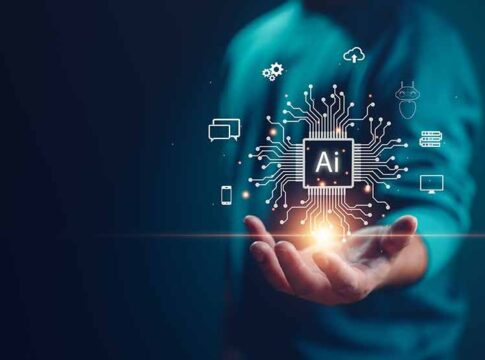Mark Cuban sheds light on the significant role of human oversight in AI. Cuban highlights the rise of AI but argues it lacks critical thinking. Is AI bound to take over jobs?
AI and its Impact on Jobs
Mark Cuban, speaking on “The Weekly Show with John Stewart,” articulated that while AI can efficiently handle repetitive tasks, it doesn’t pose a significant threat to jobs requiring critical thought. Cuban posits that roles necessitating nuanced understanding are indispensable despite technological advancements. His insights align with broader economic analyses, underscoring the importance of maintaining human oversight in AI deployments.
Cuban highlighted the need for human engagement to ensure the accuracy and reliability of AI. This involves overseeing data models and providing essential feedback, reflecting a growing consensus that AI should complement human abilities rather than supplant them. The call to equip AI systems with critical inputs from experienced personnel reinforces the notion of augmented intelligence.
Mark Cuban: if you don't know AI, you are going to fail pic.twitter.com/DJx0AryrKK
— Tsarathustra (@tsarnick) March 14, 2024
AI and Automation
Artificial intelligence predominantly impacts roles emphasizing binary decisions, as noted by Cuban. “So if your job is answering the question, ‘yes or no,’ all the time — AI is going to have an impact. If your job requires you to think — AI won’t have much of an impact,” Cuban stated. However, the need for intellectual resources to guide AI systems remains pivotal in determining outcomes and addressing complex challenges.
“It takes intellectual capacity. So somebody who understands what the goal is, somebody who’s been doing this for years, has got to be able to input feedback on everything that the models collect and are trained on. You don’t just assume the model knows everything. You want somebody to check — to grade their responses — and make corrections,” said Mark Cuban.
Recent reports reflect that technological advancements may necessitate retraining as AI continues to evolve. A McKinsey study projects AI enhancing productivity by automating up to 30% of work hours. Nonetheless, white-collar roles requiring critical analysis remain resilient, as these functions demand human intuition and creativity.
Mark Cuban says AI agents are a feature not a product because as AI gets smarter, it will be able to create its own agents pic.twitter.com/8sCWlRWVBu
— Tsarathustra (@tsarnick) October 4, 2024
Ensuring a Balanced Future
Mark Cuban’s perspective also sheds light on the varied implications AI integration may have among different companies. “Every company is different. But the biggest determinant is how well the company can implement AI,” Cuban noted. The pathway forward involves an adaptable workforce capable of leveraging AI advancements while retaining core human cognitive skills.
The dialogue emphasizes a vital balance needed to navigate future workforce dynamics, ensuring AI acts as a supportive instrument to human proficiency rather than an overshadowing presence. As innovations develop, investing in training and understanding technological tools could bolster productivity without diminishing the human element at work.


